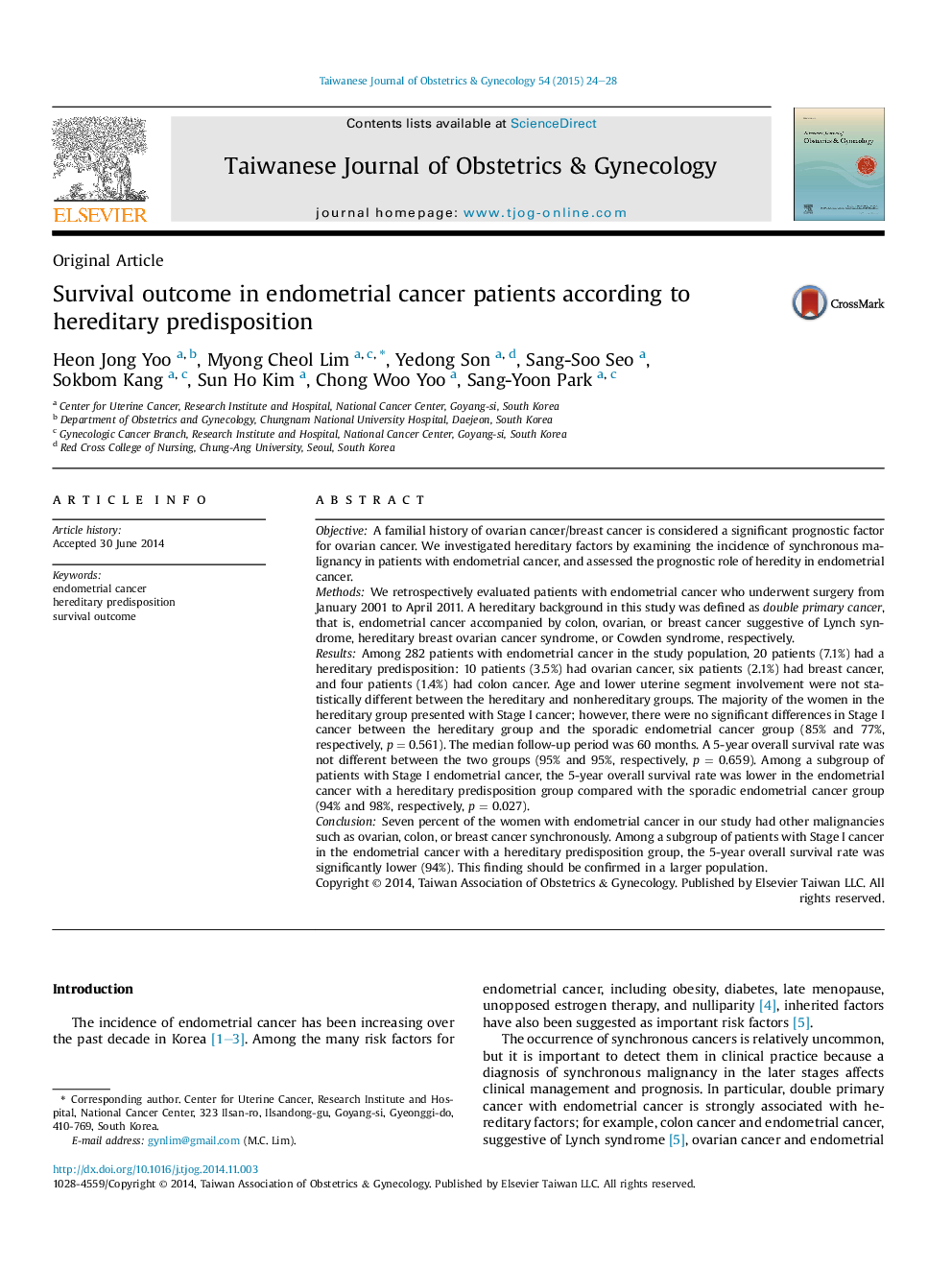| Article ID | Journal | Published Year | Pages | File Type |
|---|---|---|---|---|
| 3974911 | Taiwanese Journal of Obstetrics and Gynecology | 2015 | 5 Pages |
ObjectiveA familial history of ovarian cancer/breast cancer is considered a significant prognostic factor for ovarian cancer. We investigated hereditary factors by examining the incidence of synchronous malignancy in patients with endometrial cancer, and assessed the prognostic role of heredity in endometrial cancer.MethodsWe retrospectively evaluated patients with endometrial cancer who underwent surgery from January 2001 to April 2011. A hereditary background in this study was defined as double primary cancer, that is, endometrial cancer accompanied by colon, ovarian, or breast cancer suggestive of Lynch syndrome, hereditary breast ovarian cancer syndrome, or Cowden syndrome, respectively.ResultsAmong 282 patients with endometrial cancer in the study population, 20 patients (7.1%) had a hereditary predisposition: 10 patients (3.5%) had ovarian cancer, six patients (2.1%) had breast cancer, and four patients (1.4%) had colon cancer. Age and lower uterine segment involvement were not statistically different between the hereditary and nonhereditary groups. The majority of the women in the hereditary group presented with Stage I cancer; however, there were no significant differences in Stage I cancer between the hereditary group and the sporadic endometrial cancer group (85% and 77%, respectively, p = 0.561). The median follow-up period was 60 months. A 5-year overall survival rate was not different between the two groups (95% and 95%, respectively, p = 0.659). Among a subgroup of patients with Stage I endometrial cancer, the 5-year overall survival rate was lower in the endometrial cancer with a hereditary predisposition group compared with the sporadic endometrial cancer group (94% and 98%, respectively, p = 0.027).ConclusionSeven percent of the women with endometrial cancer in our study had other malignancies such as ovarian, colon, or breast cancer synchronously. Among a subgroup of patients with Stage I cancer in the endometrial cancer with a hereditary predisposition group, the 5-year overall survival rate was significantly lower (94%). This finding should be confirmed in a larger population.
